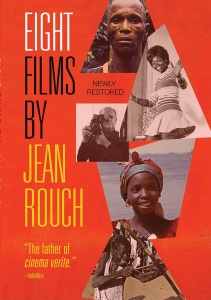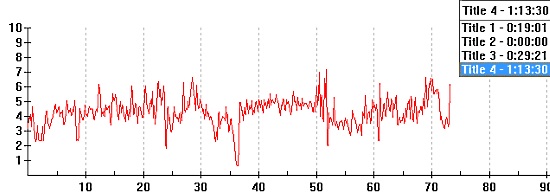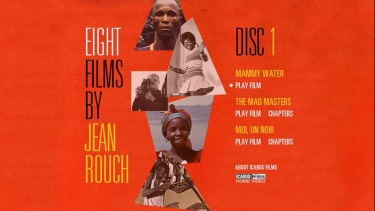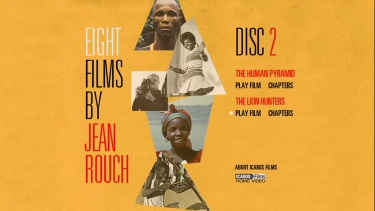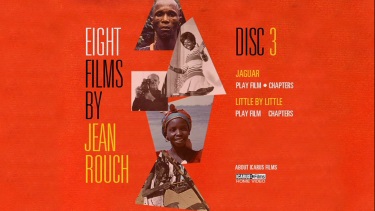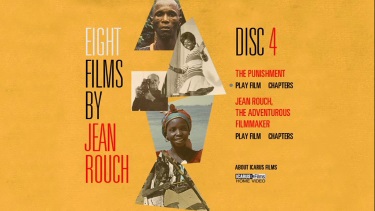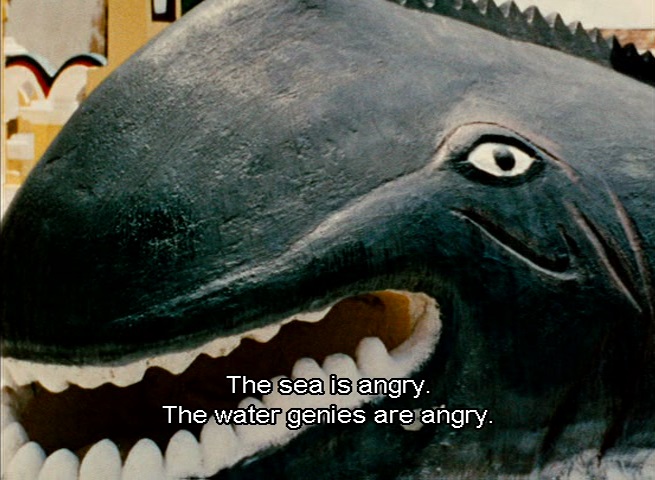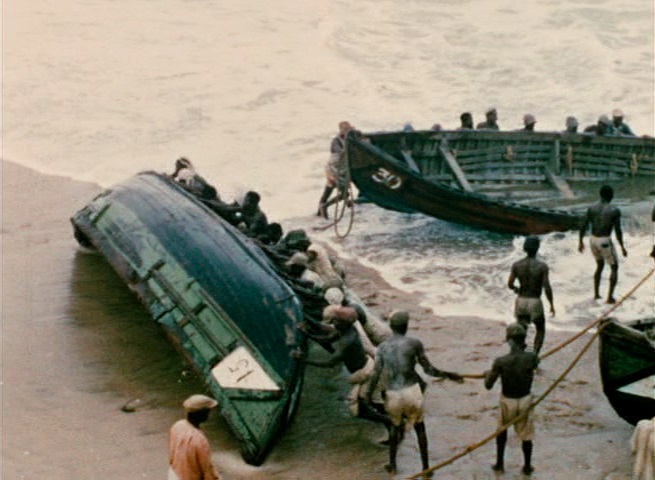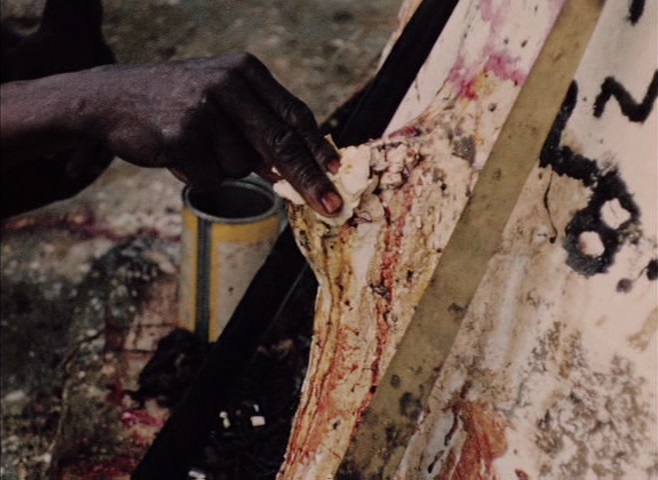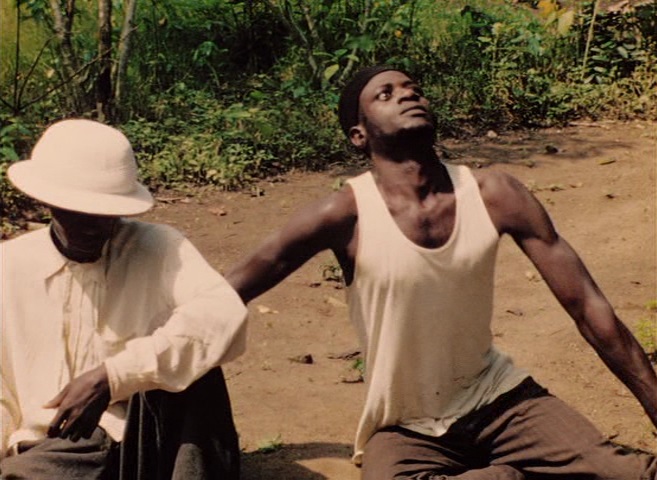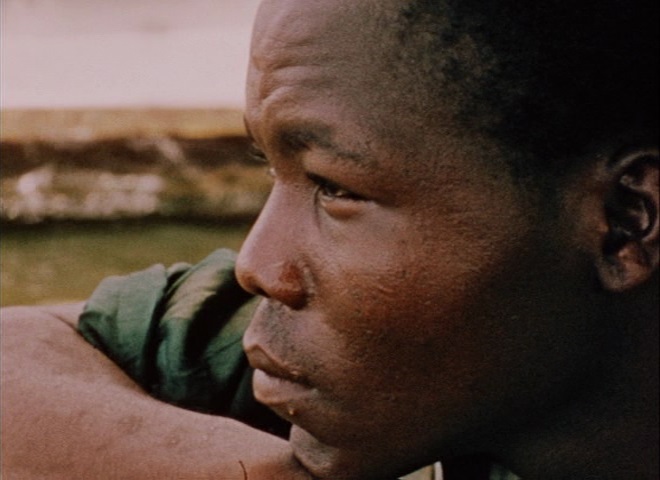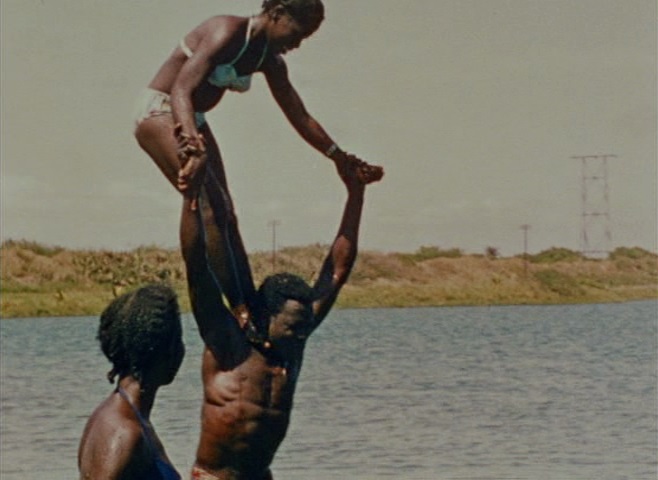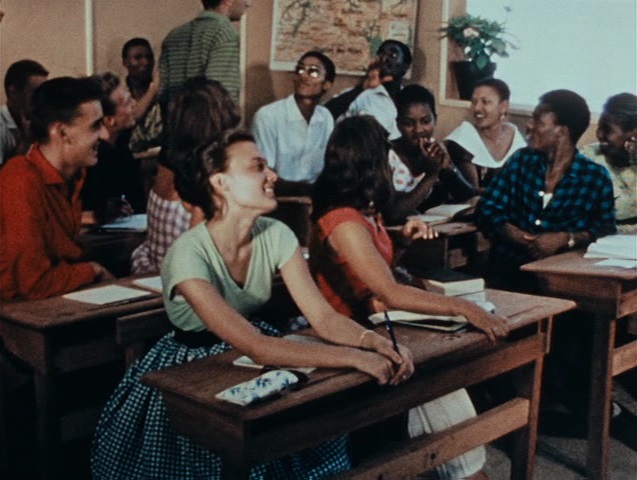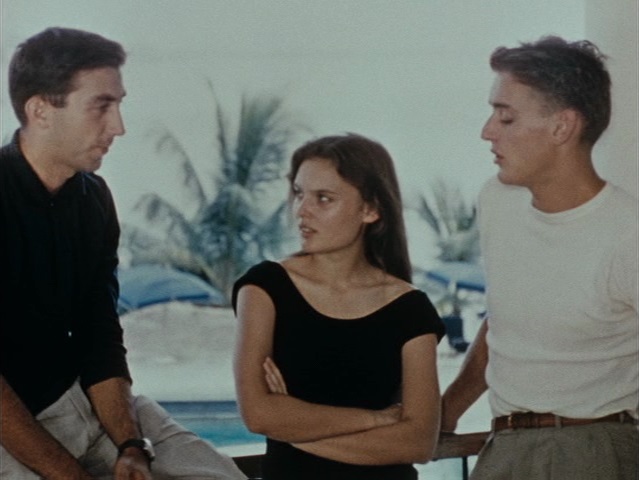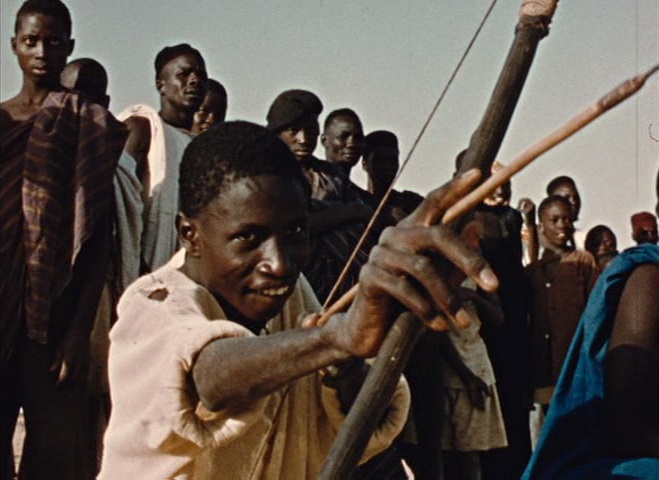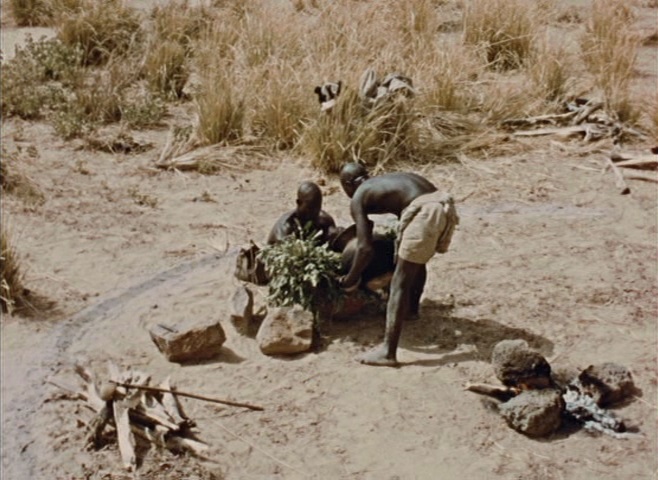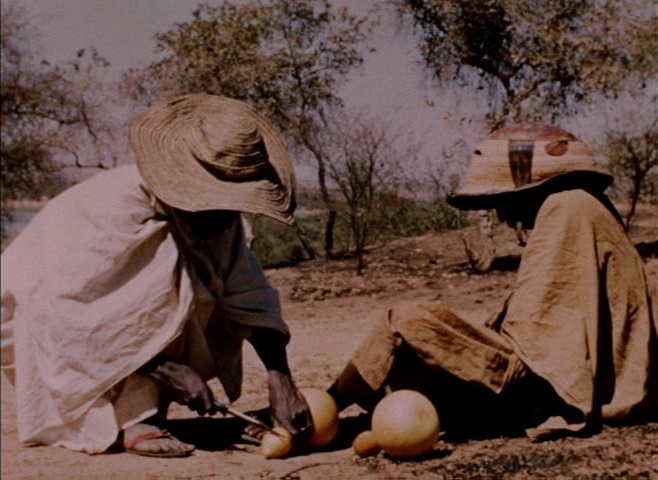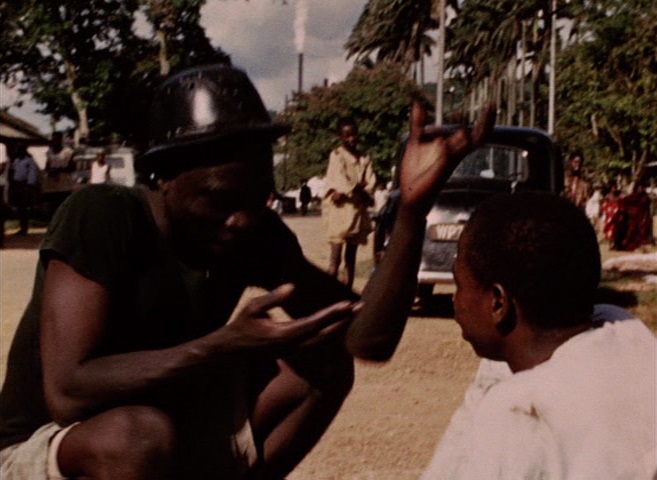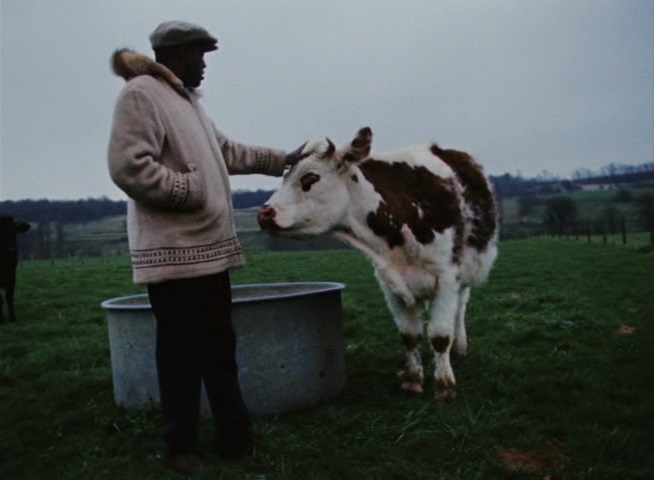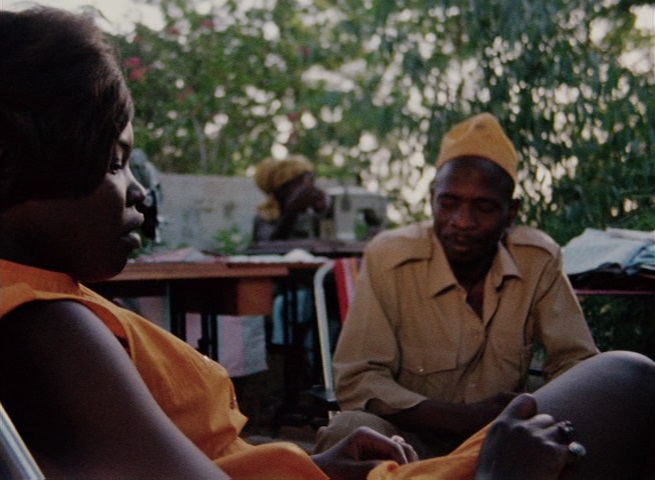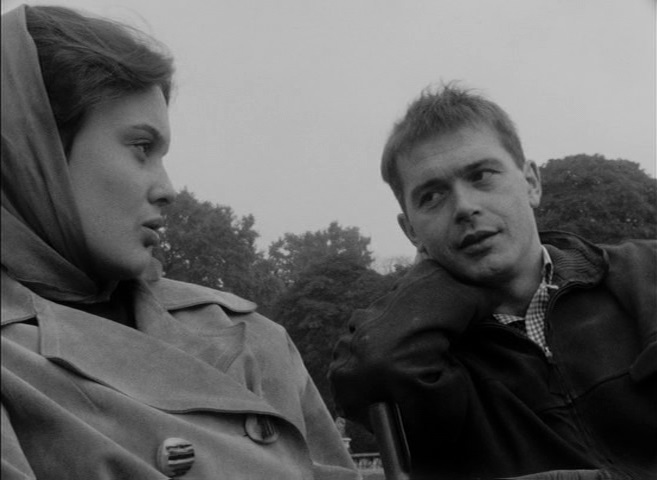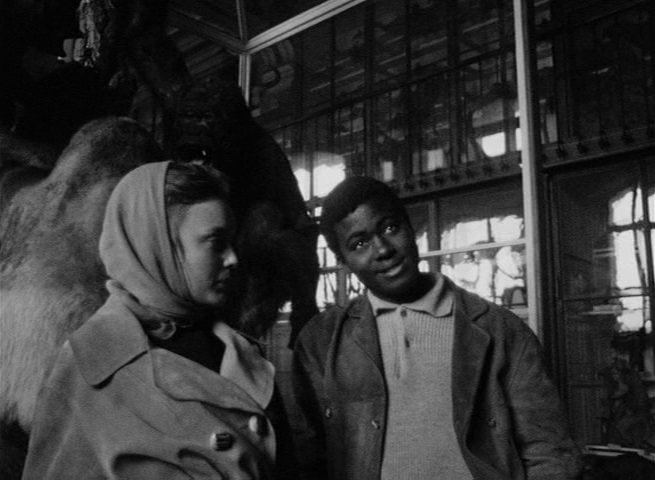![]()
![]()

![]()
![]()
|
Search DVDBeaver |
S E A R C H D V D B e a v e r |
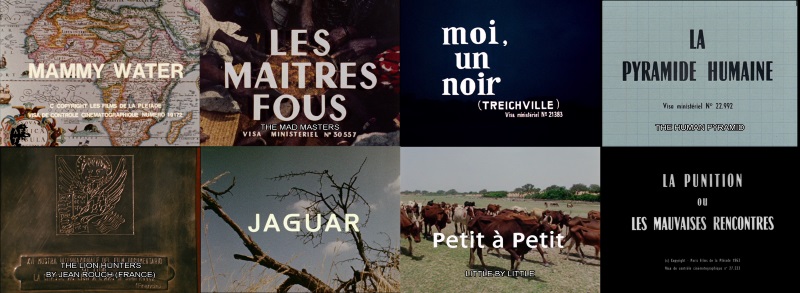
directed by Jean Rouch
France 1953
|
One of the early
pioneers of ethnographic filmmaking to treat the
field as something beyond the documentation of
processes and descriptions of objectively-observed
behavior, anthropologist Jean Rouch (1917-2004) left
a body of work about African cultures encompassing
everything from traditional cultural practices to
the adaptation and resistance of practitioners when
confronted with mechanization and industrialization,
even entering into collaborative relationships with
his subjects of study and producing controversial
works questioning the intersection between the
people in front of the camera as storytellers and
the influence of his own control as film editor. The
EIGHT FILMS BY JEAN ROUCH in this collection
represent roughly a tenth of his output between 1953
and 1971, and that period roughly a third of his
fifty-five years as a filmmaker; however, it does
include some major works of note. The most
traditionally observational of Rouch's films in the
set, MAMMY WATER details the "The Festival of
the King of Shama" in which the "Surf Boys" of Shama
must leave a series of offerings to the water
spirits when the catch is bad. THE MAD MASTERS
takes a somewhat more experimental and reflexive
approach to observational documentary as it depicts
the possession rituals of the Hauka sect in
immigrants from diverse places in Africa working as
tradesmen in Accra on the Gold Coast are inhabited
by the new gods (whose identities mirror and lampoon
their colonial masters), and ponders the role the
ritual plays in the clash between tradition and
modernization. I, A NEGRO is an example of
Rouch's ethnofiction, created in collaboration with
its participants - narrator and job-seeking laborer
"Edward G. Robinson" (whose ambition is to become
boxing champion "Edward G. Sugar Ray Robinson"),
taxi driving lothario "Eddie Constantine", boxing
idol "Tarzan", and childhood love
interest/prostitute "Dorothy Lamour" - covering a
week of their lives in Treichville in search of
work, food, recreation, and romance before the cycle
starts all over again. |
Theatrical Release: 1953-1971
DVD Review: Icarus Films - Region 1 - NTSC
Big thanks to Eric Cotenas for the Review!
| DVD Box Cover |
|
CLICK to order from:
|
| Distribution |
Icarus Films Region 1 - NTSC |
|
| Runtime | 9:06:46 | |
| Video |
1.37:1 Original Aspect Ratio
16X9 enhanced |
|
|
NOTE: The Vertical axis represents the bits transferred per second. The Horizontal is the time in minutes. |
||
| Bitrate |
|
|
| Audio | French/English Dolby Digital 2.0 mono | |
| Subtitles | English, none | |
| Features |
Release
Information: Studio: Icarus Films Aspect Ratio:
Edition Details: Chapters |
|
| Comments |
Newly restored in 2K from the Centre National du Cinema, these progressive, anamorphic pillarboxed 1.37:1 fullscreen encodes are the best I have seen these titles look (having covered some of Rouch's work for my master's thesis), taking into account the verite nature of the work and Rouch's preference of the wind-up Bell + Howell Filmo 16mm camera and Kodachrome reversal film for most of his African work. While the narration of THE MAD MASTERS is in heavily-accented English as usual - optional subtitles would have been helpful in this case as I had to consult some old college notes for the line "panacea against mental disorders" - the other films are in French with newly-translated optional English subtitles. Besides the new documentary "Jean Rouch, The Adventurous Filmmaker" - which is just as much about Rouch in Africa as the ways his film endeavors spurred the development of a filmmaking culture in Nigeria - the set also includes a booklet with essays by Paul Stoller (author of "The Cinematic Griot: The Ethnography of Jean Rouch") and IndieWire's Eric Kohn. NOTE: the English narration of Mad Masters and Lion Hunters has optional closed captioning. |
DVD Menus
|
|
|
|
|
|
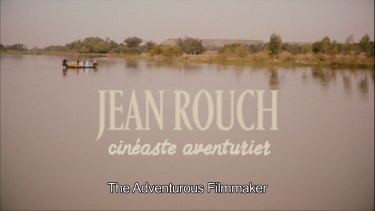 |
Screen Captures
Subtitle sample
|
|
|
|
|
|
|
|
|
|
|
|
|
|
|
|
|
|
|
|
|
|
|
|
|
|
|
|
|
|
|
|
| DVD Box Cover |
|
CLICK to order from:
|
| Distribution |
Icarus Films Region 1 - NTSC |
|
![]()
![]()
![]()
![]()
 Search DVDBeaver |
S E A R C H D V D B e a v e r |
